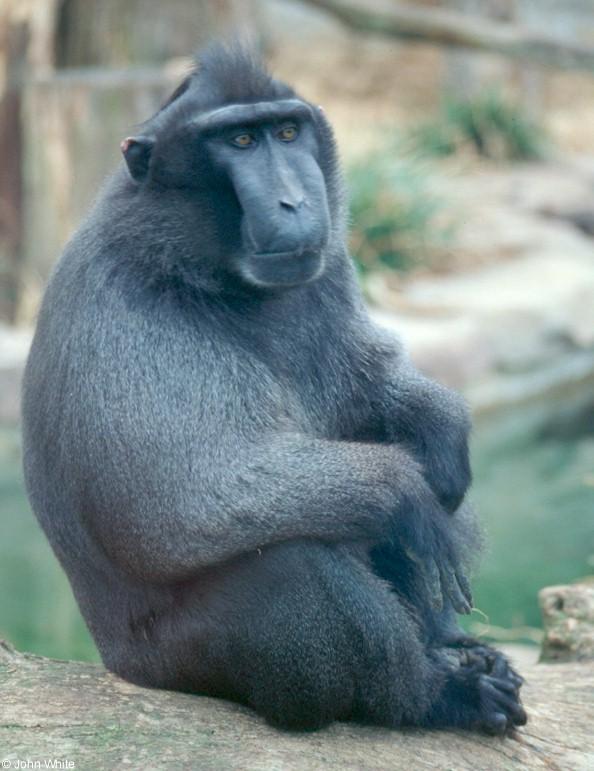|
| Query: black macaque | Result: 24th of 38 | |
Monkey #1 - Celebes Crested Macaque (Macaca nigra) <!--검둥원숭이-->
| Subject: | Monkey #1 - Celebes Crested Macaque (Macaca nigra)
| | Poster: | John White (reptiles@erols.com)
| |

| File size : 56805 bytes
File date : 2000:04:01 10:05:20
Resolution: 594x771
Jpeg process : Baseline
Posted Newsgroups: alt.binaries.pictures.animals
Posted Date: Tue, 28 Mar 2000 12:38:22 -0500 |
|

